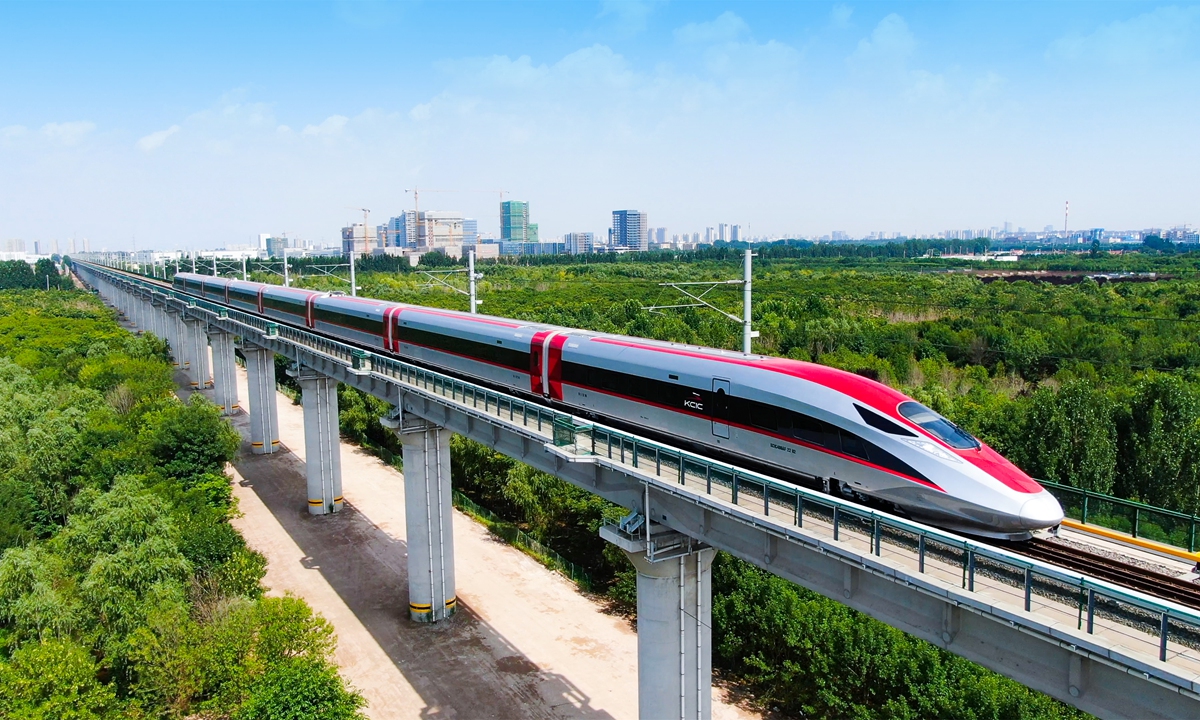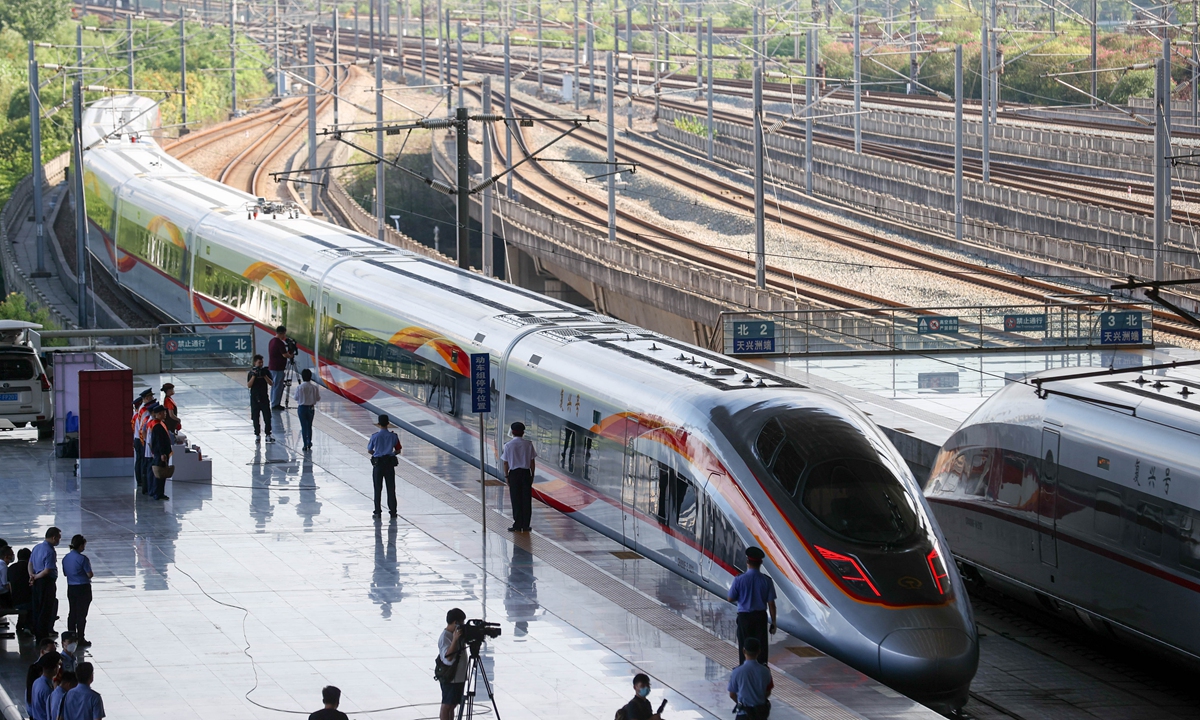Indonesia has rescheduled the free trial launch of its China-funded high-speed rail line to the next month, announced the consortium overseeing the project on August 8.
Part of China’s Belt and Road Initiative, this $7.3 billion project had an initial completion target of 2019 but has encountered several challenges, including a significant $1.2 billion cost overrun and operational delays.
The project aims to establish a 142 km railway line connecting Jakarta, the capital, to Bandung. The consortium PT KCIC, composed of Indonesian and Chinese state entities, has now conveyed the need for an extended timeframe to ensure the safety and convenience of passengers, resulting in the postponement of the free trial run.
Initially planned for August 18, a preliminary limited free trial for passengers has been rescheduled to early September. Nevertheless, the complete operational launch on October 1 remains unaffected by this delay, as confirmed by KCIC.
Transport ministry official Mohamad Risal Wasal said, “Safety checks were ongoing as of August 4.” While PT KCIC indicated that their internal trial phases progressed without issues, the company is actively collaborating with the transport ministry to secure the essential operational certificates.

During the visit of Indonesian President Joko Widodo to China, Chinese President Xi Jinping underscored the joint responsibility of both nations to uphold stringent standards for the project’s culmination.
The project is a noteworthy stride in Indonesia’s ambitious agenda to bolster its infrastructure landscape. This railway effectively links Indonesia’s capital city with Bandung, a prominent urban center and the nation’s fourth-largest municipality.
The Jakarta-Bandung railway is the first overseas rail venture to comprehensively incorporate Chinese railway systems, technology, and industrial constituents.
Scheduled to commence commercial operations by October, the extensive 142.3-kilometer railway line is poised to achieve a notable milestone. Upon its completion, Indonesia will secure its position as the inaugural Southeast Asian nation boasting a high-speed railway system.
The transport network will dramatically reduce the travel duration between Jakarta and Bandung, condensing the journey time from over three hours to approximately 45 minutes.
The Complex Journey Of Indonesia’s High-Speed Railway Project
In 2015, PT KCIC secured the project, prevailing over a Japanese competitor by offering a more cost-effective proposal. China Railway then established a facility in Indonesia, employing approximately 2,000 to 3,000 local workers.
These workers were systematically trained in construction techniques, ranging from the intricacies of fastening steel bars to the erection of structural beams. Additionally, plans are underway to provide training to the local operating and management company once the railway becomes operational.
Initially slated for completion in 2019, the project’s timeline has been marred by delays attributed to disputes over land ownership, uncertainties surrounding its economic impact, and the disruptive effects of the Covid-19 pandemic.
Indonesia’s state-owned companies own a majority stake of 60 percent in KCIC, while their Chinese counterparts hold the remaining shares.
PT KCIC anticipates a 40-year period for their investment to generate profitability, doubling the initial estimates conveyed by an executive last year.

For commuters, one-way fares on the line are expected to reach up to 350,000 rupiah (approximately US$23.50), varying based on the distance traveled. This pricing represents nearly a quarter of the average weekly income of an Indonesian citizen.
Comparatively, the planned 45-minute train journey between Jakarta and Bandung contrasts with a two to three-hour car trip or the existing three-hour train route.
However, industry experts caution that the terminal stations are outside city centers, and the high-speed rail line might encounter challenges in attracting the targeted business passengers.
However, the delays and budget overruns are not unique to this high-speed rail initiative, as similar challenges have been encountered in high-speed rail projects worldwide, including those in Western countries.
Moreover, Indonesia is currently in discussions with China regarding an extra loan amounting to US$560 million and seeking an interest rate of 2.8 percent for the segment of the loan denominated in yuan.
This proposed rate is notably lower than the China Development Bank (CDB) offer, which stands at 3.46 percent.
Nonetheless, considering the difficulties encountered by the project thus far, accurately predicting the future trajectory of the initiative remains a complex task.
- Contact the author at ashishmichel(at)gmail.com
- Follow EurAsian Times on Google News




